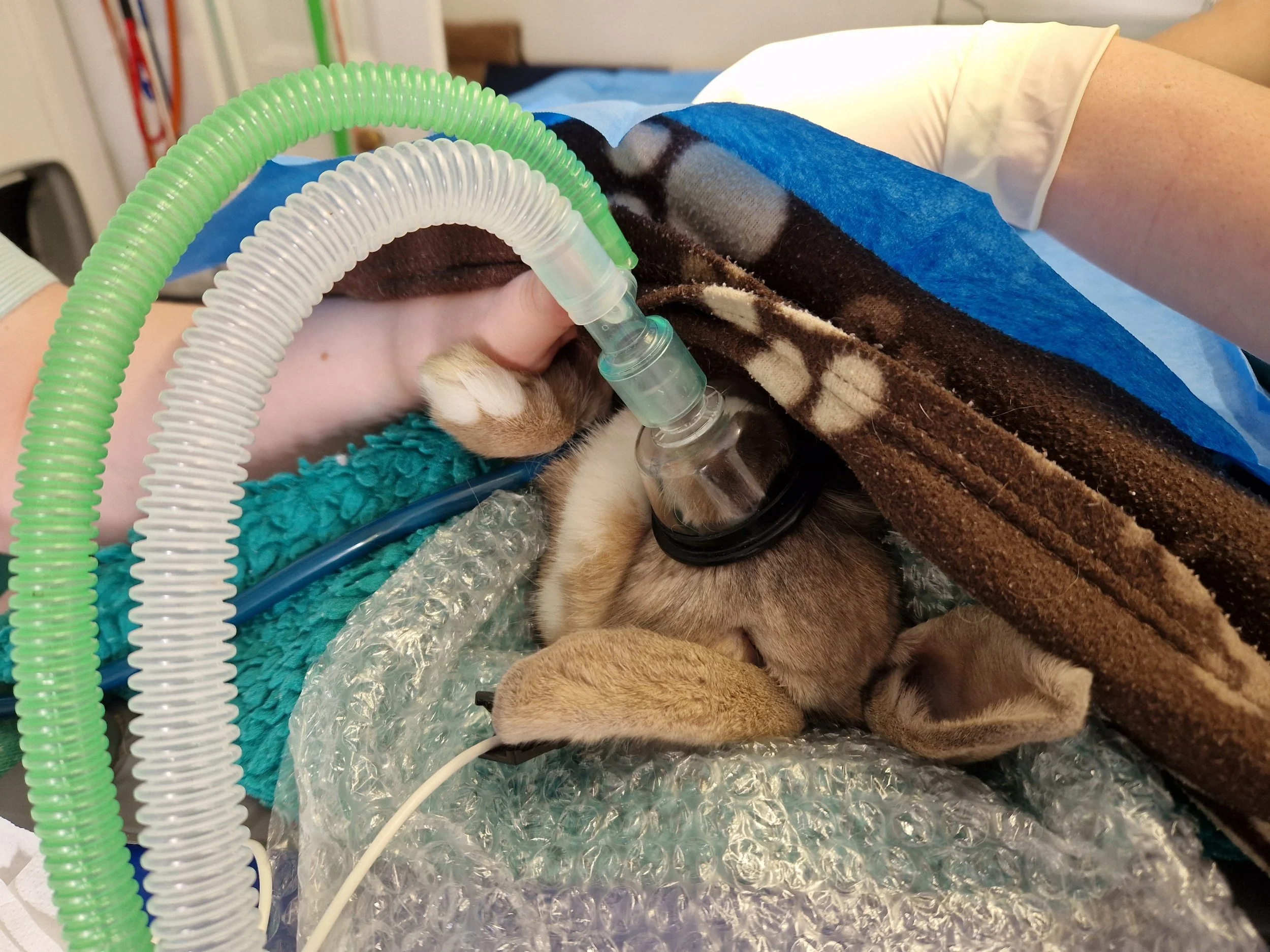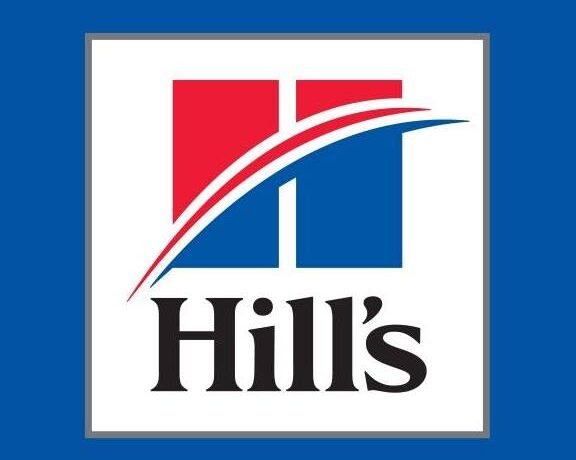Surgery at Two Rivers Vets
All of our vets have considerable experience in small animal surgery. We undertake a variety of routine and emergency surgical procedures, ranging from basic suturing of wounds and minor lump removals, to major abdominal surgery and fracture repairs. We understand how stressful it is for owners to have a pet in with us for a surgical procedure, and by explaining the process and gaining your informed consent for everything we do, we hope to make things a little easier.
All hospitalised pets undergoing surgery are monitored carefully by our veterinary nurses, who also play a very important role in their anaesthetic and providing pain relief. And of course they get lots of cuddles!
A few examples of the types of surgery we do are listed below.
Spay (ovariohysterectomy)
Spaying (removing the ovaries and uterus from) a bitch is considered a major procedure as it involves opening up the abdomen and removing organs which are deep inside with a good blood supply. However all our vets are experienced surgeons, and would consider spaying to be routine surgery. The main thing that makes this procedure difficult is fat, so it helps if your pet is not overweight.
We recommened spaying from 6 months of age, and if a bitch had been in season then to wait 3 months before booking her in.
Spaying cats is normally done via a small flank incision (on the side) and in most cats is fairly straightforward. We place dissolving sutures for cat spays. Cats can become pregnant very early, so we recommend spaying at 4-6mths old.
Pet Health Club members receive a 10% discount on spaying.
Castration
Castration (removal of the testicles) is a common procedure in male dogs and cats. If you decide to have your dog castrated we advise this from at around 6 months of age, but may be later for large and giant breed dogs. Cats should be castrated from 4-6 months old.
Castration is a much less invasive procedure than spaying, and animals usually recover very quickly.
Animals which are cryptorchid (one or both testicles are retained within the abdomen) should always be castrated as the retained testicle is more likely to become cancerous over time. This procedure is more invasive as the missing testicle(s) can sometimes be tricky to find!
Pet Health Club members receive a 10% discount on castration.
Pyometra
Pyometra is a potentially life-threatening condition common in older entire bitches (those which have not been spayed). Infection builds up in the uterus which can become very large - it is essentially filled with pus.
Sign of pyometra include drinking a lot, a vaginal discharge (in some cases) with reduced appetite, in the first 2 or 3 months after a season. If not diagnosed, the bitch can become extremely unwell due to toxins from the infection.
Surgical treatment (spaying) is required. We may need to run bloods and stabilise the your pet before anaesthesia. The surgery is more tricky due to the size and delicate nature of the uterus (we don’t want to burst it!) and more risky for the bitch if she is very poorly prior to the procedure.
Lumpectomy
A lumpectomy can be anything from a pea-sized mass, to a growth which has become a considerable weight for the pet to carry. Lumps can be benign, or cancerous.
Before removing a lump, we will often have performed a Fine Needle Aspirate (FNA) or biopsy to determine its nature. This will help us decide whether it is possible to remove, as some lumps need a wide margin of normal-looking skin around them to be cut away too. Knowing what the lump is will allow us to discuss a prognosis with you.
If we suspect cancer, we might need further information eg. chest xrays to find out if it may already have spread to other areas of the body.
Dental surgery
Dental surgery may be required in addition to a routine scale and polish if broken or loose teeth are present. Teeth which are loose (and have only one root) usually come out easily, but teeth with multiple roots, or which are broken but otherwise have solid roots, require surgical extraction. Canine teeth and the large molars are most challenging.
We only extract teeth if it’s considered essential for the pet’s welfare. There is also an option to refer pets with a fractured tooth (but otherwise healthy mouth) to a veterinary dental expert (Dental Vets in Haddington) for restorative dentistry rather than extraction.
Caesarian section
We love caesarian sections! These often involve a bigger team - a vet to do the surgery, a nurse to monitor the anaesthetic and one, two or more puppy resuscitators.
Caesarian sections are often emergencies, though some may be planned for example if we know there is only one large puppy. We have breeder clients with all size and shapes from Pugs to Boerboels. Some of these amazing bitches have as many as 16 puppies!
We are happy to discuss the merits of attempting to deliver puppies naturally, sometimes with the help of oxytocin injections where appropriate, versus going straight for surgery at the first sign of a problem. Every situation is different and we work with our breeder clients to strive for the best outcome of a healthy bitch and lots of live puppies in every case.
Exploratory laparotomy
An exploratory laparotomy is a surgical exploration of the abdomen. There are lots of reasons to do this, for example if we suspected a foreign body in the stomach or intestines, a problem with the liver or spleen, or a penetrating injury to the abdomen.
Often we know what we are looking for (for example we have seen a foreign body on xray, or have tapped the abdomen and suspect a bleeding splenic mass), but other times we have a vague history of vomiting, weight loss or abdominal pain and just want to take a look. We will always discuss other options with you before recommending major surgery, and will advise referral to the R(D)SVS for more specialised imaging first and surgery if necessary.
Fracture repair and other orthopaedic surgery
Our vets are happy to carry out some types of orthopaedic surgery including some types of fracture repair and cruciate surgery in smaller dogs.
We are lucky to have the R(D)SVS, Vet Specialists Scotland in Livingston and East Neuk Vet Clinic in Fife nearby, each of which have specialist orthopaedic surgeons we can refer to if necessary. We would refer pets for more complex fracture surgery, cruciate ligament surgery in larger breed dogs, hip replacement surgery, arthroscopy (looking inside joints with a tiny camera), luxating patella surgery, and any type of spinal surgery. Referral to these centres is expensive and we would recommend pet insurance for this eventuality.
Bladder surgery (cystotomy)
Bladder stones are not uncommon in pets. They are often diagnosed when treatment of cystitis symptoms is ineffective, or cystitis returns within a short period of time, and we need to investigate further.
Small stones and crystals or ‘sludge’ may pass out themselves, or can be dissolved using a change of diet. Larger stones will not pass, or are risk of getting stuck in the urethra, a particular problem in males.
Surgery to open the bladder and remove a large stone is usually fairly straightforward, but if several smaller stones are stuck, it can take a while to flush out all the plumbing!














